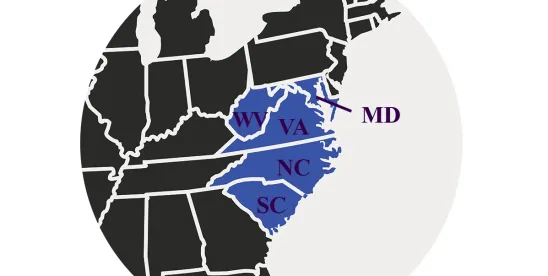On March 14, the U.S. Court of Appeals for the Fourth Circuit vacated the dismissal of a lawsuit alleging a failure to reasonably investigate a disputed debt.
The lawsuit concerned a consumer who disputed a debt that she claimed was fabricated by her housing provider in retaliation for asserting her rights under her lease. After she refused to pay an invoice for alleged damages, the housing provider assigned the debt to a collection agency. The debt collector then reported the disputed amount to credit reporting agencies, prompting the consumer to file a dispute. Upon receiving notice of the dispute, the credit reporting agencies requested that the debt collector conduct a reasonable investigation, as required under Section 1681s-2(b)(1) of the Fair Credit Reporting Act (“FCRA”). Instead of performing the required investigation, the debt collector relied solely on the creditor’s recertification of the debt.
The consumer filed suit. The district court dismissed the case, reasoning that the consumer’s challenge involved a legal dispute and therefore did not require further investigation under FCRA. The Fourth Circuit reversed, holding that inaccuracies — whether legal, factual or a mix of both — are actionable under Section 1681s-2(b) if the plaintiff pleads an objectively and readily verifiable inaccuracy.
The court clarified that disputes involving complex fact-gathering or in-depth legal analysis such as those courts would typically perform are not “objectively and readily verifiable,” nor are disputes involving unsettled questions of law or credibility determinations, which therefore fall outside the scope of actionable inaccuracies under the FCRA. However, the court also emphasized that a “reasonable investigation” may require more than just confirming basic details like the debt amount or the debtor’s name.
With this decision, the Fourth Circuit joins the Second and Eleventh Circuits in rejecting a bright-line rule that excludes legal inaccuracies. This approach contrasts with rulings from the First and Tenth Circuits, which maintain that only factual inaccuracies are actionable under FCRA.
Putting It Into Practice: The ruling clarifies what constitutes an “actionable inaccuracy” under the FCRA. Specifically, the ruling expands potential liability for furnishers under the FCRA by expanding the subset of factual inaccuracies that are actionable. The Fourth Circuit’s decision aligns with a broader trend of heightened scrutiny and reforms to the FCRA over the past year (previously discussed here). Furnishers and credit reporting agencies should prepare to evaluate a broader range of consumer disputes and stay tuned for further FCRA-related regulatory developments, which will likely include an appeal to the Supreme Court at some point to resolve the conflict among the Circuit Courts.





 />i
/>i
